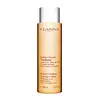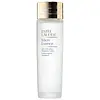What's inside
What's inside
 Key Ingredients
Key Ingredients

 Benefits
Benefits

 Concerns
Concerns

No concerns
 Ingredients Side-by-side
Ingredients Side-by-side

Aloe Barbadensis Leaf Juice
Skin ConditioningPropanediol
SolventPEG-8
HumectantButylene Glycol
HumectantPhenoxyethanol
PreservativePanthenol
Skin ConditioningGlycerin
HumectantPEG-32
HumectantPPG-26-Buteth-26
Skin ConditioningAlpha-Glucan Oligosaccharide
CleansingEthylhexylglycerin
Skin ConditioningSodium Citrate
BufferingPEG-40 Hydrogenated Castor Oil
EmulsifyingAcrylates/C10-30 Alkyl Acrylate Crosspolymer
Emulsion StabilisingParfum
MaskingTromethamine
BufferingCarbomer
Emulsion StabilisingTocopheryl Acetate
AntioxidantSodium Dehydroacetate
PreservativeHydrolyzed Linseed Extract
Skin ConditioningLinum Usitatissimum Seed Extract
PerfumingTilia Cordata Wood Extract
RefreshingButylphenyl Methylpropional
PerfumingAlpha-Isomethyl Ionone
PerfumingCitric Acid
BufferingPotassium Sorbate
PreservativeSodium Benzoate
MaskingBenzyl Alcohol
PerfumingLinalool
PerfumingXanthan Gum
EmulsifyingBenzyl Salicylate
PerfumingAmyl Cinnamal
PerfumingCitronellol
PerfumingAnise Alcohol
PerfumingEugenol
PerfumingGeraniol
PerfumingAlthaea Officinalis Root Extract
Skin ConditioningPrunus Amygdalus Dulcis Fruit Extract
Skin ConditioningCI 15985
Cosmetic ColorantAloe Barbadensis Leaf Juice, Propanediol, PEG-8, Butylene Glycol, Phenoxyethanol, Panthenol, Glycerin, PEG-32, PPG-26-Buteth-26, Alpha-Glucan Oligosaccharide, Ethylhexylglycerin, Sodium Citrate, PEG-40 Hydrogenated Castor Oil, Acrylates/C10-30 Alkyl Acrylate Crosspolymer, Parfum, Tromethamine, Carbomer, Tocopheryl Acetate, Sodium Dehydroacetate, Hydrolyzed Linseed Extract, Linum Usitatissimum Seed Extract, Tilia Cordata Wood Extract, Butylphenyl Methylpropional, Alpha-Isomethyl Ionone, Citric Acid, Potassium Sorbate, Sodium Benzoate, Benzyl Alcohol, Linalool, Xanthan Gum, Benzyl Salicylate, Amyl Cinnamal, Citronellol, Anise Alcohol, Eugenol, Geraniol, Althaea Officinalis Root Extract, Prunus Amygdalus Dulcis Fruit Extract, CI 15985
Water
Skin ConditioningBifida Ferment Lysate
Skin ConditioningPEG-75
HumectantPropanediol
SolventButylene Glycol
HumectantBetaine
HumectantPentylene Glycol
Skin ConditioningLactobacillus Ferment
Skin ConditioningAcetyl Hexapeptide-8
HumectantAcetyl Glucosamine
Skin ConditioningTrehalose
HumectantCaffeine
Skin ConditioningSodium Hyaluronate
HumectantAnthemis Nobilis Flower Extract
MaskingCaprylyl Glycol
EmollientCarbomer
Emulsion StabilisingPPG-5-Ceteth-20
EmulsifyingCitric Acid
BufferingPotassium Sorbate
PreservativeSodium Citrate
BufferingTromethamine
BufferingDisodium EDTA
Phenoxyethanol
PreservativeWater, Bifida Ferment Lysate, PEG-75, Propanediol, Butylene Glycol, Betaine, Pentylene Glycol, Lactobacillus Ferment, Acetyl Hexapeptide-8, Acetyl Glucosamine, Trehalose, Caffeine, Sodium Hyaluronate, Anthemis Nobilis Flower Extract, Caprylyl Glycol, Carbomer, PPG-5-Ceteth-20, Citric Acid, Potassium Sorbate, Sodium Citrate, Tromethamine, Disodium EDTA, Phenoxyethanol
Ingredients Explained
These ingredients are found in both products.
Ingredients higher up in an ingredient list are typically present in a larger amount.
Butylene Glycol (or BG) is used within cosmetic products for a few different reasons:
Overall, Butylene Glycol is a safe and well-rounded ingredient that works well with other ingredients.
Though this ingredient works well with most skin types, some people with sensitive skin may experience a reaction such as allergic rashes, closed comedones, or itchiness.
Learn more about Butylene GlycolCarbomer is a polymer of acrylic acid. Its main role is to create a gel consistency.
A high amount of carbomer can cause pilling or balling up of products. Don't worry, most products contain 1% or less of carbomer.
Citric Acid is an alpha hydroxy acid (AHA) naturally found in citrus fruits like oranges, lemons, and limes.
Like other AHAs, citric acid can exfoliate skin by breaking down the bonds that hold dead skin cells together. This helps reveal smoother and brighter skin underneath.
However, this exfoliating effect only happens at high concentrations (20%) which can be hard to find in cosmetic products.
Due to this, citric acid is usually included in small amounts as a pH adjuster. This helps keep products slightly more acidic and compatible with skin's natural pH.
In skincare formulas, citric acid can:
While it can provide some skin benefits, research shows lactic acid and glycolic acid are generally more effective and less irritating exfoliants.
Most citric acid used in skincare today is made by fermenting sugars (usually from molasses). This synthetic version is identical to the natural citrus form but easier to stabilize and use in formulations.
Read more about some other popular AHA's here:
Learn more about Citric AcidPhenoxyethanol is a preservative that has germicide, antimicrobial, and aromatic properties. Studies show that phenoxyethanol can prevent microbial growth. By itself, it has a scent that is similar to that of a rose.
It's often used in formulations along with Caprylyl Glycol to preserve the shelf life of products.
Potassium Sorbate is a preservative used to prevent yeast and mold in products. It is commonly found in both cosmetic and food products.
This ingredient comes from potassium salt derived from sorbic acid. Sorbic acid is a natural antibiotic and effective against fungus.
Both potassium sorbate and sorbic acid can be found in baked goods, cheeses, dried meats, dried fruit, ice cream, pickles, wine, yogurt, and more.
You'll often find this ingredient used with other preservatives.
Learn more about Potassium SorbatePropanediol is an all-star ingredient. It softens, hydrates, and smooths the skin.
It’s often used to:
Propanediol is not likely to cause sensitivity and considered safe to use. It is derived from corn or petroleum with a clear color and no scent.
Learn more about PropanediolSodium Citrate is the sodium salts of citric acid. In skincare, it is used to alter pH levels and acts as a preservative.
Its main functions are to maintain the pH of a product and neutralize metal ions.
The acidity of our skin is maintained by our glands and skin biome; normal pH level of skin is slightly acidic (~4.75-5.5).
Being slightly acidic allows our skin to create an "acid mantle". This acid mantle is a thin barrier that protects our skin from bacteria and contaminants.
Learn more about Sodium CitrateTromethamine helps balance the pH and improve the texture of a product. It is synthetically created.
As an emulsifier, Tromethamine prevents oil and water ingredients from separating. This helps stabilize the product and elongate a product's shelf life. Tromethamine also makes a product thicker.
Tromethamine helps balance the pH level of a product. Normal pH level of skin is slightly acidic (~4.75-5.5). The acidity of our skin is maintained by our glands and skin biome. Being slightly acidic allows our skin to create an "acid mantle". This acid mantle is a thin barrier that protects our skin from bacteria and contaminants.
Oral Tromethanmine is an anti-inflammatory drug but plays the role of masking, adding fragrance, and/or balancing pH in skincare.
1,3-Propanediol, 2-amino-2-(hydroxymethyl)-
Learn more about Tromethamine